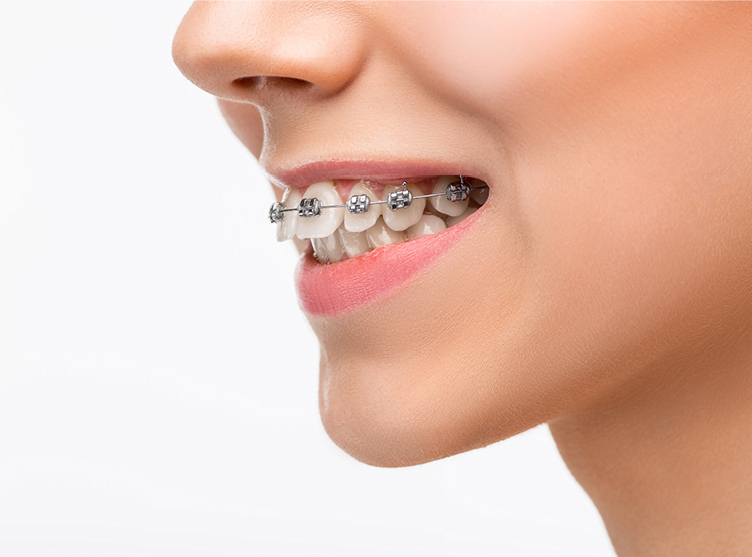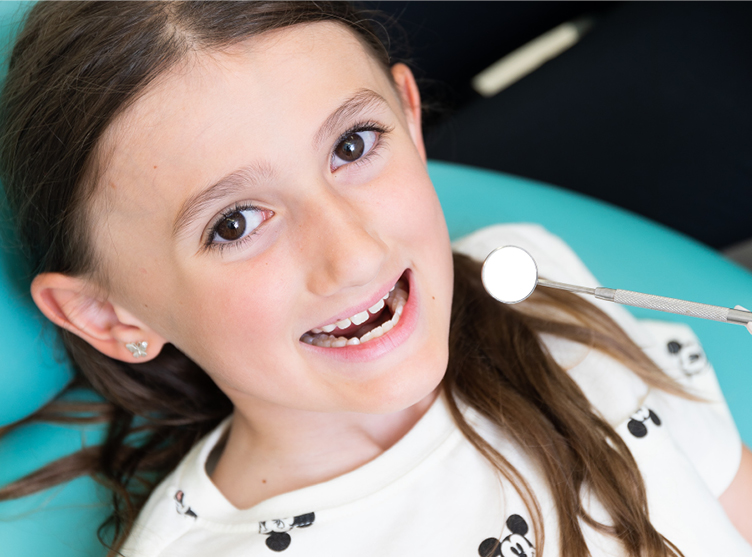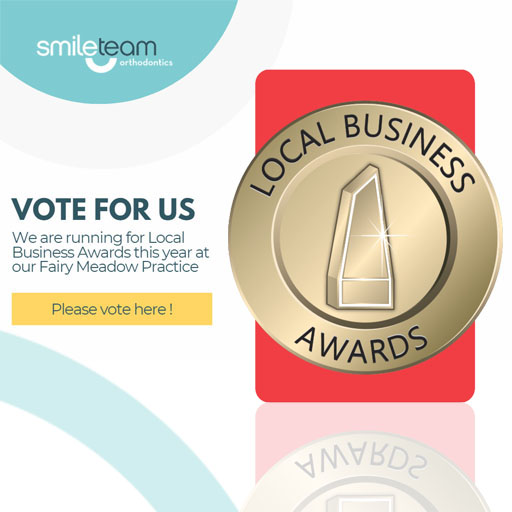
Most people discover their overbite through a dentist or orthodontist during an examination. The first step to obtain proper treatment requires understanding what an overbite represents and its effects on teeth, speech, and overall health.
Early detection of jaw misalignment and front teeth overlapping by you or your child leads to better prevention of future dental complications. The following guide explains the origins of overbite teeth, along with their warning signs and current orthodontic solutions for correction.
For younger patients, early treatment options like children’s orthodontics may reduce the need for complex procedures later in life.
What Is an Overbite?
The vertical position of the upper front teeth extending past the lower front teeth defines an overbite condition. A small amount of overbite exists normally, but deep or severe cases lead to discomfort and eating difficulties and speech problems and permanent dental harm.
Overbite vs Overjet: What’s the Difference?

It’s common to confuse overbite with overjet, but they are not the same:
- Overbite: The upper front teeth overlap the lower front teeth vertically.
- Overjet: The upper front teeth protrude horizontally, which results in a “buck teeth” appearance.
Causes of Overbite and Overjet
Overbite and overjet can be caused by genetics, growth patterns, and environmental habits.
Genetic and Developmental Causes
- Family history of jaw misalignment
- Disproportionate jaw growth (e.g. smaller lower jaw)
- Irregular eruption of permanent teeth
Childhood Habits
- Prolonged thumb sucking or dummy use
- Tongue thrusting (when the tongue pushes against the front teeth during swallowing or speech)
Tooth Loss and Jaw Misalignment
- Early loss of baby teeth or adult teeth without proper orthodontic management
- Shifting of remaining teeth into incorrect positions
Bruxism (Teeth Grinding)
- Excessive grinding or clenching can wear down enamel, shift teeth and worsen bite problems.
Symptoms and Health Risks of an Untreated Overbite
Untreated overbite teeth can cause more than just cosmetic concerns. It may lead to the following symptoms:
Jaw Pain and Discomfort
When teeth are misaligned, jaw muscles and joints can become strained, resulting in:
- TMJ pain or stiffness
- Clicking or popping when chewing
- Headaches or facial tension
Difficulty Chewing and Eating
- Misaligned teeth may cause pain when biting or chewing.
- Excessive pressure on certain teeth can lead to premature wear.
- In some cases, the lower teeth may hit the roof of the mouth, causing ulcers.
Speech Problems
- Overbite and overjet may lead to lisps or difficulty pronouncing certain sounds.
- Words with “s” and “z” may sound distorted due to tongue placement.
Tooth Decay and Gum Issues
- Crooked or crowded teeth are harder to clean properly.
- Increased risk of plaque buildup, gum inflammation, or cavities
Sleep Apnea and Breathing Difficulties
A deep overbite may indicate a short lower jaw or narrow palate, both of which are associated with:
- Obstructive sleep apnea (OSA)
- Mouth breathing and snoring
- Poor sleep quality, especially in children
When Should You Seek Treatment?
The best time to address an overbite is early, ideally between the ages of 7 and 9, when the jaw is still developing. However, adults can also benefit from orthodontic treatments to correct alignment and prevent long-term damage.
Book a consultation with Smile Team to find out the right treatment for your age and case severity.
Treatment Options for Overbite and Overjet

The good news is that overbite and overjet can be effectively treated using various orthodontic techniques. The right solution depends on several factors, including your age, the severity of the misalignment, and whether the issue is primarily dental or skeletal.
Let’s explore the most common treatment options available today.
Braces
Traditional braces are a time-tested solution for correcting overbite and overjet issues by gradually moving the teeth into their ideal positions.

How They Work
Brackets are fixed to the teeth and connected by wires, which apply gentle pressure over time. Additional tools like rubber bands or springs may shift the bite and align the jaws.
Types of Braces
- Metal braces: Strong and effective for severe overbites
- Ceramic braces: Less visible but function similarly to metal braces
- Lingual braces: Placed behind the teeth for discretion
Suitable for
Children, teens, and adults
Treatment Time
12 to 24 months on average
Want to learn more? Discover how braces can correct bite issues.
Invisalign (Clear Aligners)
Invisalign and other clear aligners are increasingly popular for mild to moderate overbite cases, especially among adults who prefer a less noticeable option.

How It Works
Custom-made trays fit over your teeth and are replaced every 1–2 weeks. In some cases, a “bite ramp” feature is added to help adjust jaw position and reduce overbite.
Advantages
- Nearly invisible
- Removable for meals and brushing
- Often more comfortable than braces
Limitations
It may not be suitable for severe skeletal overbites.
Treatment Time
Typically 12 to 18 months
Invisalign may also help patients with overjet by pushing teeth back into a healthier position.
Palatal Expander
A palatal expander is an orthodontic appliance often used in children with narrow upper jaws. Widening the upper jaw can help align the bite and prevent or reduce overjet.
How It Works
The device is attached to the upper molars and gradually widened using a small key, allowing the palate to expand naturally.
Best for
Children aged 7 to 12 whose bones are still developing
Treatment Time
Typically 6 months
Benefits
- Prevents crowding and crossbites
- Creates space to avoid future orthodontic complications
- May improve breathing and reduce the risk of sleep apnea
Jaw Surgery (Orthognathic Surgery)
In severe cases where overbite or overjet is due to skeletal discrepancies, such as a significantly underdeveloped lower jaw, jaw surgery may be necessary.
What It Involves
- Performed by a specialist oral and maxillofacial surgeon
- Typically combined with orthodontics before and after the procedure.
- Jawbones are surgically repositioned to achieve better alignment.
Best for
- Adults with skeletal jaw issues
- Cases where braces or Invisalign are not enough
Note: Surgery is usually a last-resort option when non-surgical treatments are ineffective.
Overbite Correction by Age Group
Treatment options may vary depending on the patient’s age and jaw development stage.
| Age Group | Recommended Treatment |
|---|---|
| 7–9 years | Early orthodontic evaluation, palate expander, habit correction appliances |
| 10–14 | Braces, Invisalign Teen |
| Adults | Braces, Invisalign, or jaw surgery |
The earlier an overbite is detected and treated, the better the long-term results.
Frequently Asked Questions (FAQs)

Is an overbite considered normal?
A small overbite is considered normal and healthy. However, when the overlap is too large, it can lead to complications and should be assessed by an orthodontist.
Is overjet the same as overbite?
No. An overbite is the vertical overlap of the upper and lower front teeth, while an overjet is when the upper teeth protrude outward horizontally beyond the lower teeth.
Can an overbite go away on its own?
In some children, mild overbites may improve as they grow. However, in most cases, orthodontic treatment is needed to fully correct the alignment.
What happens if an overbite is left untreated?
It may lead to jaw pain, uneven tooth wear, difficulty speaking, gum recession, and in severe cases, sleep apnea.
Can thumb sucking cause an overjet?
Yes. Prolonged thumb sucking or dummy use during early childhood can push the upper front teeth forward, resulting in an overjet or increased overbite.
Is treatment for overbite painful?
Orthodontic treatments may cause temporary discomfort, especially after adjustments, but they are generally manageable and well-tolerated.
Can adults fix overbites without braces?
In mild cases, clear aligners may be enough. In more severe cases, braces or surgery may be required. A consultation can determine the best approach.
How long does it take to fix an overbite?
Treatment time varies from 12 months to 2 years, depending on severity and method.
Can an overbite cause sleep apnea?
Yes. Overbites related to jaw underdevelopment or airway restriction can contribute to sleep-disordered breathing, including obstructive sleep apnea.
Quick Summary: What You Should Know About Overbite
- An overbite is when the upper front teeth excessively overlap the lower ones.
- A deep overbite can lead to speech problems, chewing pain, and jaw disorders.
- Overjet is a related condition where the upper teeth protrude forward.
- Causes include genetics, thumb sucking, jaw development issues, and teeth grinding.
- Treatments include braces, Invisalign, palate expanders, or jaw surgery.
- Early treatment in children can prevent complex problems later in life.
- Adults can also benefit from modern orthodontic solutions.
Final Thoughts
Overbites and overjets create problems that extend beyond appearance because they affect your everyday activities and your future dental wellness. Early detection combined with proper treatment allows you to fix your bite while enhancing your smile and safeguarding your teeth from future harm.
Whether you’re a parent exploring options for your child or an adult seeking a solution, Smile Team is here to help.

